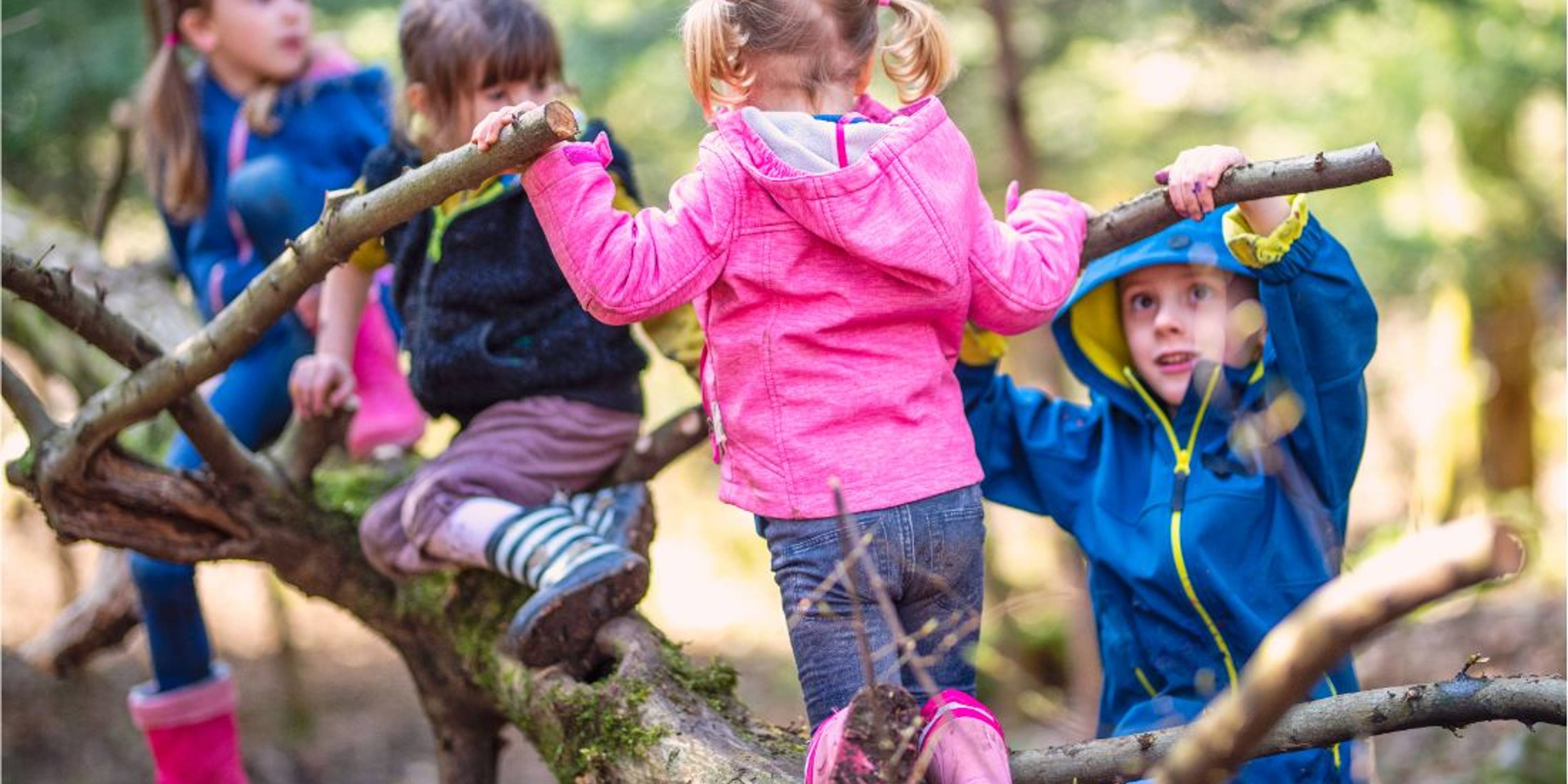July 15, 2022
Cyberbullying and social connectedness

This month, we are highlighting Dr Larisa McLoughlin and her fantastic work on cyberbullying. Estimates regarding the prevalence of cyberbullying vary, but it is thought that by the end of their school careers, up to 75% of young people will have been impacted by it, either as a perpetrator, a victim (or both), or as a bystander. Cyberbullying is clearly a prevalent concern during adolescence and it is also a significant contributor to poor mental health outcomes, including anxiety and depression. Establishing effective coping mechanisms and protective factors which might mitigate its negative influence is therefore vital.
Dr McLoughlin’s study investigates a small sample of 12-year-old Australian participants from the Longitudinal Adolescent Brain Study (LABS) to establish what impact social connectedness has on levels of wellbeing for young people with experiences of cyberbullying.
Summary
Common incidents of cyberbullying include receiving hurtful messages, having images, messages or content shared without permission and being excluded from online groups or games. For this kind of behaviour to constitute cyberbullying, there generally needs to be an intent to cause harm and for the behaviours to be repeated over time. A one off incident would not usually be classified as cyberbullying.
Frequently, young people who experience cyberbullying also cyberbully others themselves. These are known as ‘bully victims’ and research suggests these individuals experience the most severe mental health problems, with more depression and anxiety than people who are only either perpetrators or victims.
Research shows that social connectedness may act as a protective factor for mental health and wellbeing when young people experience cyberbullying. Dr McLoughlin’s paper furthers this body of research by examining the links between social connectedness, wellbeing, and cyberbullying over time.
Social connectedness is well established as an important aspect of adolescence, with higher levels typically resulting in positive mental health and wellbeing. Being socially connected means having good quality relationships, on and offline, and the knowledge that there are people who like and value us and who we can turn to for help and support.
This study analysed the participants’ personal experiences of cyberbullying, their levels of social connectedness and their wellbeing scores. It found that the negative influences of cyberbullying and cybervictimisation on wellbeing scores over time are lessened by strong levels of social connectedness.
It appears that increased social connectedness promotes positive wellbeing over time and can protect wellbeing in those experiencing cyberbullying and/or cybervictimisation.
Implications
“The results highlight the important role that social connectedness plays in promoting wellbeing in both cybervictims and cyberbullies over time.”
Implications for parents
Aim to have open and honest conversations with children about cyberbullying and promote help-seeking behaviours, before any problems crop up. Ensuring that children feel comfortable talking about their experiences online is crucial. If your child is involved in cyberbullying, think carefully before removing their devices. It may feel like you are protecting them, but you might also be denying them access to vital supportive connections. Make time to discuss positive coping strategies.
On average, participants were not shown to have experienced multiple instances of cyberbullying or cybervictimisation. Parents should be aware that even very few experiences are linked to significant effects on wellbeing and that social connectedness and support are important regardless of the level of exposure.
Implications for schools
Dr McLoughlin notes that, "Schools should place an emphasis on the importance of connection and ensure there are a number of (social) support systems in place for students who may need it." Promote social connections through peer schemes, have a readily available pastoral team and make sure that young people are aware of helplines and external sources of support should they feel uncomfortable talking to friends, family or staff.

Dr Larisa McLoughlin
Research Fellow
Dr Larisa McLoughlin has over a decade of experience conducting cyberbullying research, and is currently a Research Fellow at the Behaviour-Brain-Body Research Centre at University of South Australia. Larisa just completed four years of work at the Thompson Institute, University of the Sunshine Coast, working on the Longitudinal Adolescent Brain Study (LABS). LABS is collecting data using: self-report, neurocognitive assessments, neuropsychiatric interviews, MRI scans, and EEG.
Larisa has also undertaken her own research investigating the neurobiological underpinnings of cyberbullying. Her research used functional Magnetic Resonance Imaging (fMRI) to observe how the brain responds to witnessing cyberbullying. Larisa has developed CyPicS (Cyberbullying Picture Series) for use in this research. Larisa’s postgraduate work focused on cyberbullying, namely the mental health outcomes associated with it, as well as help-seeking and coping behaviours of young people. Her PhD was under a scholarship by the Young and Well Cooperative Research Centre, and Larisa was a key team member for the Safe and Well Online Study at UniSA, led by Associate Professor Barbara Spears.
Dr Larisa McLoughlin
Research Fellow
Related Resources


Who is There for Me?
Scroll our research gallery

Jan 19, 2026
The power of reading: books, vocabulary and learning
Did you know that 2026 is the UK’s National Year of Reading? This long-overdue initiative reflects growing concern and renewed commitment around children’s reading and literacy. As Dr Maria Korochkina, our latest Researcher of the Month, puts it: “The ability to read opens up worlds. Reading enables children to progress into post-primary education and provides the basis for lifelong learning and prosperity into adulthood”. Frequent readers tend to have a stronger understanding of both their own and others’ emotions. They are often better able to communicate these emotions, a skill linked to higher emotional intelligence and improved mental wellbeing. Reading also encourages cause-and-effect reasoning and helps children imagine scenarios beyond the immediate moment - developing the skill of -future-thinking'. A rich vocabulary underpins learning across the school curriculum, strengthens thinking and communication skills, and predicts both academic attainment and later life outcomes. Research consistently shows that the most effective way to build vocabulary is through reading. However, learning to read well is not quick or effortless. The journey to skilled reading typically spans around ten years, requiring high-quality classroom instruction alongside sustained practice through independent reading. For many children, this process is painstaking, demanding consistent teaching, encouragement and opportunity over time. Against this backdrop, recent evidence presents a worrying picture. Fewer children are reading for pleasure than ever before. In 2024, only one in three UK children and young people aged eight to 18 reported enjoying reading in their free time. Even more strikingly, just one in five said they read daily for pleasure, the lowest level recorded since the National Literacy Trust began collecting this data in 2005. This matters because reading ability and reading enjoyment are deeply intertwined. Children who find reading effortful are far less likely to choose to read independently. Dr Korochkina’s research highlights how early reading experiences shape later habits: difficulties with phonic and morphological knowledge in the early stages of reading acquisition can have a snowball effect, reducing confidence, fluency and motivation over time. Her work also offers a powerful note of optimism. Books that children actively choose to read, including contemporary, popular texts, provide rich opportunities to develop vocabulary, particularly when children read widely. Ensuring access to a diverse range of engaging reading material, alongside strong early instruction, can play a vital role in building both reading skill and reading motivation. Fostering confident, motivated readers requires long-term commitment. It is not enough for children simply to have books available to them. They need skilled teaching, time, practice and a culture that values reading as both a skill and a pleasure.

Dec 15, 2025
Crossing the line into cybercrime
As the most digitally connected generation so far, young people today face new challenges. Our latest Researchers of the Month, Professor Davidson and Dr Farr, have found that in the last decade, an increasing number of young people (particularly young men) have committed serious cybercrime offences, particularly hacking and money laundering. Their new book, written following a large research project funded by the European Union’s Horizon 2020 research and innovation programme, seeks to understand the drivers behind this trend. It explores a range of potential factors that may lead young people to engage in risky online behaviours, and to identify effective pathways for prevention.

Nov 16, 2025
Supporting Children’s Use of AI
Children and young people are now growing up surrounded by AI, and the landscape is shifting fast. In the UK, recent data from Ofcom and Internet Matters suggests that around half of children aged 8–17 regularly use generative AI tools such as ChatGPT, Bard or Snapchat’s MyAI. Many describe these interactions as feeling like conversations with a friend. A recent report from Common Sense Media found that 33% of teens had actually chosen to talk to an AI companion instead of a real person about something important or serious. Whether children are asking voice assistants to answer their questions, relying on chatbots for bedtime stories, using learning apps for revision or engaging with large generative AI models, it’s essential to remember that most of these systems were built with adults in mind, not children. They often assume levels of attention, memory and emotional maturity that younger users simply don’t have. Even older children and teenagers, who increasingly use AI as a supportive confidante (often without adult supervision or knowledge), are still learning to navigate boundaries around trust, identity and emotion. Our latest Researcher of the Month, Dr Nomisha Kurian, wants this to change. She has developed a new framework called Developmentally Aligned Design (DAD), which outlines how AI can be built with children’s needs, vulnerabilities and strengths at its core. She also chatted to us at Tooled Up, sharing practical tips on recognising when children may be relying too heavily on AI for emotional connection, how to talk to them about healthy boundaries, and how parents and educators can help children and young people use AI tools safely, creatively and critically.

Oct 16, 2025
Algorithmised Girlhood: Teenage Girls and TikTok
As part of the early stages of her PhD study, our latest researcher of the month, Chiara Fehr, ran several focus groups about experiences of TikTok with eight 17 year old girls. Using creative methods, such as ‘TikTok show and tells’ a collaging session and a utopic mapping exercise, Chiara is exploring whether dominant narratives around growing up in a digitised world reflect the real life experiences of teens, and has summarised her findings so far in a recent article.
![“[They use devices] alllllllll day long”. What do children think about our tech use?](https://cdn.sanity.io/images/jxfh43in/content-prod-d2c/79f219275088655f59590f61ff29b6bc8b0d77f8-1100x733.jpg?w=3840&h=1920&q=70&fit=crop&crop=center&auto=format)
Sep 09, 2025
“[They use devices] alllllllll day long”. What do children think about our tech use?
We're all used to reading about children and young people's increasing use of digital tech. But what about adults' use? And what impact might our tech use have on family life? Parents today are spending an unprecedented amount of time on their devices. One study found that parents spend an average of nine hours per day engaged with screen devices. Over four hours of this is on smartphones, averaging 67 phone checks per day. Despite children's central role in family life, their voices and perspectives on the device use of the adults around them have been largely neglected in research. Along with colleagues, our latest Researcher of the Month, Professor Cara Swit, has published a fascinating study exploring the experiences and perceptions of children aged six to nine about their parents’ device use at home and its impact on them.

Aug 13, 2025
Students’ views on smartphone bans
In recent years, banning or restricting children’s access to smartphones and social media has grasped the attention of policy makers, schools and parents. A number of countries, including France, Turkey, Norway, Sweden, and regions of the US and Canada have introduced laws, policies or guidance for schools to ‘ban’ or heavily restrict the use of phones. Within Ireland, in 2024, the Minister for Education announced her intention to introduce smartphone bans in post-primary schools, whilst at the same time acknowledging that individual schools are best placed to decide on the scope and scale of restrictions for their students. Whilst these bans aim to protect children from harm, and teachers often anecdotally report seeing benefits, evaluations of existing research highlight a lack of evidence on their efficacy. At the moment, we simply don't know enough about the impact of bans. Evidence is hampered by the fact that technological developments and technology use is moving at a faster pace than research. Some studies suggest that bans are beneficial to academic outcomes and mental wellbeing. Others suggest no effects. However, many studies have methodological weaknesses, use small samples or retrospective data, and can't ascribe causal mechanisms. Our latest Researcher of the Month, Dr Megan Reynolds, has recently published a paper which explores young people's perspectives and experiences of smartphone bans in their schools. Unlike most previous research, it centres student voices in this high profile issue.

Jul 14, 2025
Do teens with mental health conditions use social media differently than their peers?
As Luisa Fassi, our new Researcher of the Month, comments, "The link between social media use and youth mental health is hotly debated, but hardly any studies look at young people already struggling with clinical-level mental health symptoms". In fact, Luisa's large systematic review and meta-analysis found that only 11% of papers published on the topic since 2007 focused on young people with clinical conditions. Her review also showed that the data used to evidence mental health conditions in these existing studies is not always strong or especially robust. Many report links between social media and mental health on the basis of short self-report questionnaires, where young people are asked about symptoms. Whilst this wasn't found as part of Luisa's review, it is also the case that very few papers in the field differentiate between different mental health conditions, or examine different symptoms or conditions (such as anxiety, ADHD or eating disorders) in isolation. To address this research gap, Luisa and colleagues have recently published a fascinating and nuanced paper. It analyses both quantitative and qualitative dimensions of social media use from a nationally representative survey of 3,340 teens in the UK aged between 11 and 19 years old, which was conducted by NHS Digital in 2017. Rather than gathering mental health data from self-report questionnaires, the young people in the survey underwent a full clinical screening, which included interviews with the young people, their parents and teachers. Information about social media use came from questionnaires completed by participants. They were not asked about specific platforms. Luisa used this data to gather novel insights into how social media and mental health are related in teens who both meet and do not meet diagnostic criteria for a wide range of mental health conditions. The study does not establish any causal links, but it does reveals a range of differences between young people with and without mental health conditions when it comes to social media.

Jun 17, 2025
Navigating the feed: younger adolescents' reflections on algorithmically curated social media
Our latest researcher of the month, Roxana Pomplun, has investigated the interactions, experiences and perceptions of younger adolescents, aged 11, 12, and 13, with algorithmically curated platforms such as TikTok, YouTube Shorts, Spotlight on Snapchat and Reels on Instagram. These kinds of platforms use algorithms to personalise and tailor feeds, harnessing user data to suggest content that the individual is most likely to be interested in and engage with. As such, young people have little control over what they are seeing in their feeds. Tech companies are not yet required to be transparent about the data that they are collecting, but it tends to include demographic information such as age, gender or location, along with use patterns. Whilst these sites dominate the digital lives of tweens and teens, until now they have received little dedicated research attention, particularly in relation to younger users, with most existing studies focusing on older teens. Whilst we know that most social media platforms have age limits of 13, we also know that many younger children are active users, particularly of algorithmically curated platforms like TikTok and YouTube Shorts. Given that early adolescence is a life phase marked by critical neurological development, identity development and heightened susceptibility to mental health issues, deepening our understanding of how younger adolescents engage with social media is vital. Roxana's qualitative research, where a group of young people eloquently explore their own experiences and perceptions, broadens our knowledge of social media use within an age group that appears increasingly aware of the digital influences shaping their online experiences, yet which is still in need of support to fully navigate these ecosystems.

May 15, 2025
Looking beyond smartphone bans
Over the last year or so, there has been a surge in public concern around smartphones and social media. Banning or restricting children’s access to smartphones and social media has grasped the attention of policy makers, schools and parents. A number of countries, including France, Turkey, Norway, Sweden, and regions of the US and Canada have introduced laws, policies or guidance for schools to ‘ban’ or heavily restrict the use of phones. In the UK, there are proposals to raise the age of ‘internet adulthood’ from 13 to 16, and to ban smartphones in schools. The third reading of a private members’ bill on this topic will be heard in parliament in July. Whilst these bans aim to protect children from harm, recent studies highlight a lack of evidence on their efficacy. Along with a team of international experts, our latest Researcher of the Month, Professor Victoria Goodyear, argues that, in isolation, banning smartphone and social media access fails to equip children for healthy use of technology. She suggests that there is a need to shift debates, policies and practices away from a sole focus on restricting smartphone and social media access, toward an emphasis on nurturing children’s digital skills for healthy technology use, and a rights-respecting approach which is underpinned by age-appropriate design and education.

Apr 22, 2025
Encouraging adventurous play in the preschool years
Tune into our podcast interview with April's researchers of the month here. As well as providing numerous opportunities for exploration, joy, and expression, outdoor and adventurous play - the type of play that allows children to take age-appropriate risks - is associated with a range of positive health behaviours and outcomes. Yes, we're talking about the kind of play that might leave us adults with our hearts in our mouths at times, as children start to disappear up a tree, or engage in a rough and tumble game of chase. But its benefits are wide-ranging and known impacts include increased levels of habitual physical activity alongside better mental health and positive mood. In 2019, Dr Hesketh was involved in the creation of physical activity guidelines in the UK, which explicitly note the importance of outdoor play for children in the preschool age group. We know quite a lot about the play habits of school-aged children, but until now, have had significantly less data on their younger counterparts. Our Researchers of the Month, Dr Kathryn Hesketh and Professor Helen Dodd set out to discover how much time preschool-aged children spend playing in a range of indoor and outdoor spaces, and how adventurously they are playing within them. In the first national survey of play in children of this age, they asked over 1000 parents of two to four year olds about their children’s play habits, finding that, on average, children aged two to four spend around four hours per day (outside of educational settings) playing. Just under 50% of this was spent playing outdoors. Their findings shed interesting light on some inequalities in play, even in the youngest age group, which may exacerbate existing inequalities in health.

